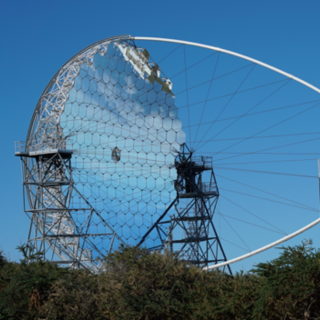Bibcode
Donnarumma, I.; Vittorini, V.; Vercellone, S.; del Monte, E.; Feroci, M.; D'Ammando, F.; Pacciani, L.; Chen, A. W.; Tavani, M.; Bulgarelli, A.; Giuliani, A.; Longo, F.; Pucella, G.; Argan, A.; Barbiellini, G.; Boffelli, F.; Caraveo, P.; Cattaneo, P. W.; Cocco, V.; Costa, E.; DeParis, G.; Di Cocco, G.; Evangelista, Y.; Fiorini, M.; Froysland, T.; Frutti, M.; Fuschino, F.; Galli, M.; Gianotti, F.; Labanti, C.; Lapshov, I.; Lazzarotto, F.; Lipari, P.; Marisaldi, M.; Mastropietro, M.; Mereghetti, S.; Morelli, E.; Morselli, A.; Pellizzoni, A.; Perotti, F.; Picozza, P.; Porrovecchio, G.; Prest, M.; Rapisarda, M.; Rappoldi, A.; Rubini, A.; Soffitta, P.; Trifoglio, M.; Trois, A.; Vallazza, E.; Zambra, A.; Zanello, D.; Pittori, C.; Santolamazza, P.; Verrecchia, F.; Giommi, P.; Colafrancesco, S.; Salotti, L.; Villata, M.; Raiteri, C. M.; Chen, W. P.; Efimova, N. V.; Jordan, B.; Konstantinova, T. S.; Koptelova, E.; Kurtanidze, O. M.; Larionov, V. M.; Ros, J. A.; Sadun, A. C.; Anderhub, H.; Antonelli, L. A.; Antoranz, P.; Backes, M.; Baixeras, C.; Balestra, S.; Barrio, J. A.; Bartko, H.; Bastieri, D.; González, J. Becerra; Becker, J. K.; Bednarek, W.; Berger, K.; Bernardini, E.; Biland, A.; Bock, R. K.; Bonnoli, G.; Bordas, P.; Tridon, D. Borla; Bosch-Ramon, V.; Bretz, T.; Britvitch, I.; Camara, M.; Carmona, E.; Chilingarian, A.; Commichau, S.; Contreras, J. L.; Cortina, J.; Costado, M. T.; Covino, S.; Curtef, V. et al.
Referencia bibliográfica
The Astrophysical Journal Letters, Volume 691, Issue 1, pp. L13-L19 (2009).
Fecha de publicación:
1
2009
Número de citas
112
Número de citas referidas
86
Descripción
We present optical, X-ray, high-energy (lap30 GeV) and very high energy
(gap100 GeV; VHE) observations of the high-frequency peaked blazar Mrk
421 taken between 2008 May 24 and June 23. A high-energy γ-ray
signal was detected by AGILE with √{TS}=4.5 between June 9 and 15,
with F(E>100 MeV) = 42+14 -12 ×
10-8 photons cm-2 s-1. This flaring
state is brighter than the average flux observed by EGRET by a factor of
~3, but still consistent with the highest EGRET flux. In hard X-rays
(20-60 keV) SuperAGILE resolved a five-day flare (June 9-15) peaking at
~55 mCrab. SuperAGILE, RXTE/ASM and Swift/BAT data show a correlated
flaring structure between soft and hard X-rays. Hints of the same
flaring behavior are also detected in the simultaneous optical data
provided by the GASP-WEBT. A Swift/XRT observation near the flaring
maximum revealed the highest 2-10 keV flux ever observed from this
source, of 2.6 × 10-9 erg cm-2
s-1 (i.e. >100 mCrab). A peak synchrotron energy of ~3 keV
was derived, higher than typical values of ~0.5-1 keV. VHE observations
with MAGIC and VERITAS between June 6 and 8 showed the flux peaking in a
bright state, well correlated with the X-rays. This extraordinary set of
simultaneous data, covering a 12-decade spectral range, allowed for a
deep analysis of the spectral energy distribution as well as of
correlated light curves. The γ-ray flare can be interpreted within
the framework of the synchrotron self-Compton model in terms of a rapid
acceleration of leptons in the jet.
Proyectos relacionados

Astrofísica de Partículas
El Grupo de Astrofísica de Partículas del IAC participa activamente en tres grandes colaboraciones internacionales de astrofísica de muy altas energías: AMS-02 (Alpha Magnetic Spectrometer), los telescopios de radiación Cherenkov MAGIC I y II y el Cherenkov Telescope Array Observatory ( CTAO). Además, participamos en el ASTRI mini-array, el
Mónica Luisa
Vázquez Acosta